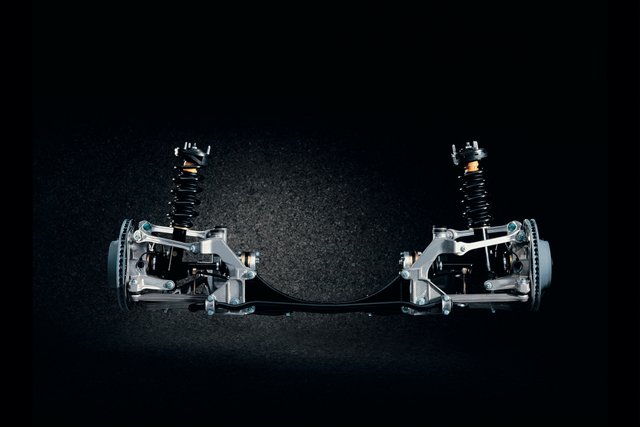What is the suspension of a car? - Become Car Smart Everyday

Introduction to Suspension
We hear many people talk about suspension whenever they say anything about cars or driving. So what exactly is suspension?
This post will cover
- What is suspension?
- What are the components?
- The function of each parts.

Everything has a purpose for existence.
So, why does suspension exist?
It sums up to three things: comfort, contact, and control. So, let's take a look how suspension delivers these three's.
When it comes to suspension, you only have to remember two components. A shock absorber aka damper and spring.
Spring

I feel this is very intuitive. Spring absorbs energy as it hits bump on the road. Without it, as a car passes a bump, the force exertion gets directly transferred to a driver. If you happen to be the driver, your body is bound to have some serious pain from the shocks.
Remember I said, one of the main purpose of suspension is to give comfort? Yes, that's exactly the reason. Spring is for energy storage. As force is exerted on a spring instead of body of a car, hence a driver, we can have a pleasant drive.
Damper (Shock Absorber)

Now, if you are only stuck with a spring as your component of suspension, you are doomed. You and the car will be bouncing around everywhere. Spring "strores" energy. That stored energy from bumps is not going to disappear. It's going to acted upon you at some point. Just like when you are on trampoline.
You jump on it (exert force) - Spring stores the energy until your downward motion is at halt - Bounces back (stored energy acted on you)
As the stored energy from bumps start to use against the car, hence a driver, we need something that dissipates the energy so we don't end up flying.
Damper consists of cylinder, piston, and oil. A cylinder is filled with oil and piston goes up or down as damper extends or compresses. Obviously, there is a limited amount of space in the cylinder so as piston moves, oil travels through the holes in the piston. That's where the magic begins. As oil travels through the holes, it generates heat. Bear with me, a bit of physics here, but very intuitive. We say there is kinetic energy when a body is in motion and in this case, the kinetic energy is stored as the damper is compressed.
But as oil travels through holes in the piston, the stored kinetic energy dissipates as heat. Thus, a car including a driver stays in contact with the road.
No matter what objects or bumps are thrown at a vehicle, the key is to stay in contact with the road. That way we have a control of steering the direction of our motion. When a car is up in the air, we lose the control.
There is a device called strut. Strut is simply spring and damper combined into one. There are several variants of strut. Most commonly used one is Macpherson strut. It's cheap and light. Moreover, it requires less complexity and is easy to insert drive shaft to wheels.
Now, you might say, what about the tires? Don't they share similar functions of spring and damper! The answer is..You are exactly right! And some other interesting functions as well. So we'll deal with tire in one of the upcoming posts very soon.
On to the next one.
One Line Summary
Suspension consists of spring and damper. The primary function is to deliver comfort, contact, and control.
Honestly speaking, thank you for sharing this piece of information. I was just starting to get interested in cars and still learning the basics. Thank you! upvoted and followed for more articles like this ;))
Thank you for your kind words. It means a lot. Will seek to put out quality contents that are useful everyday.